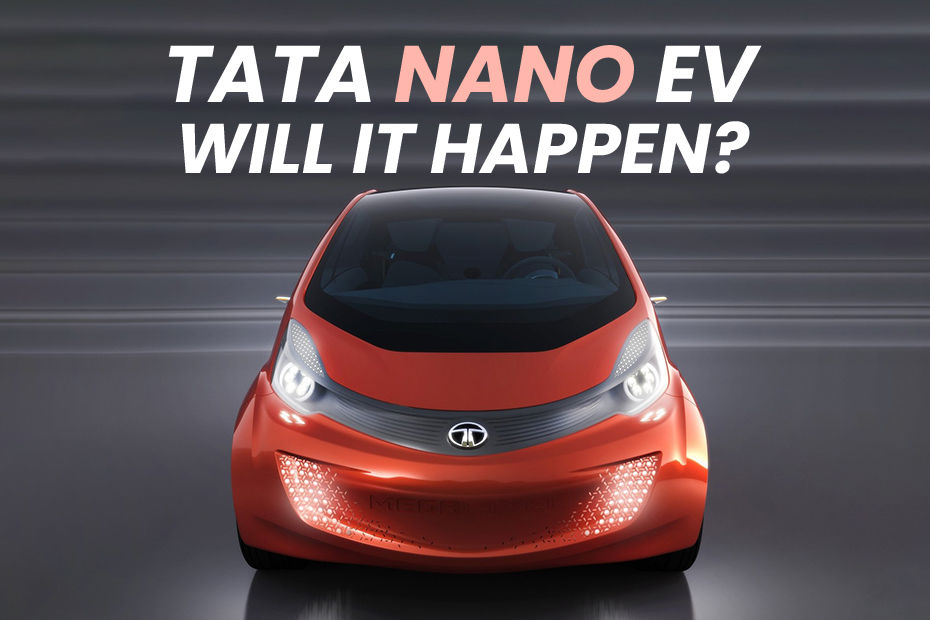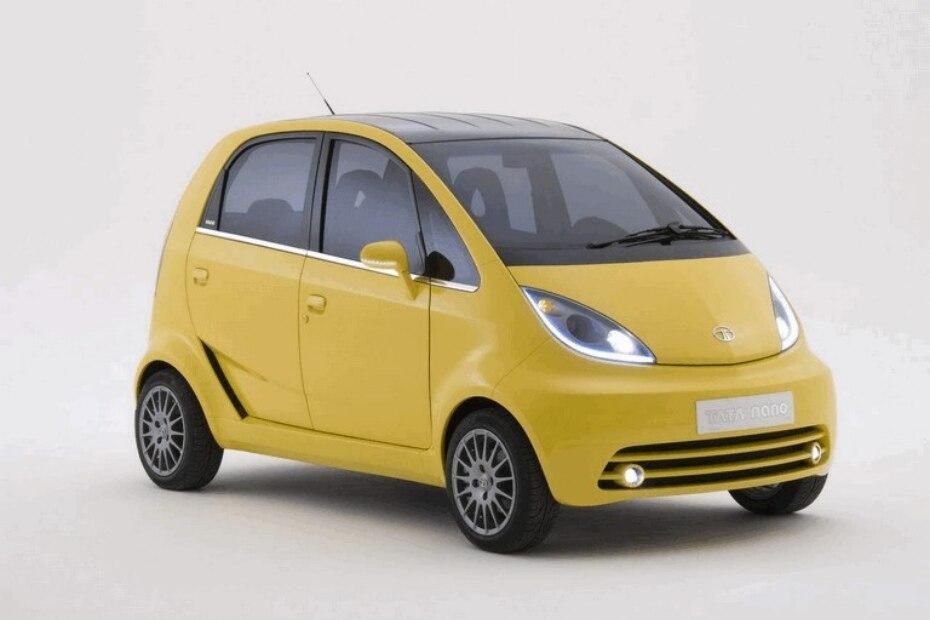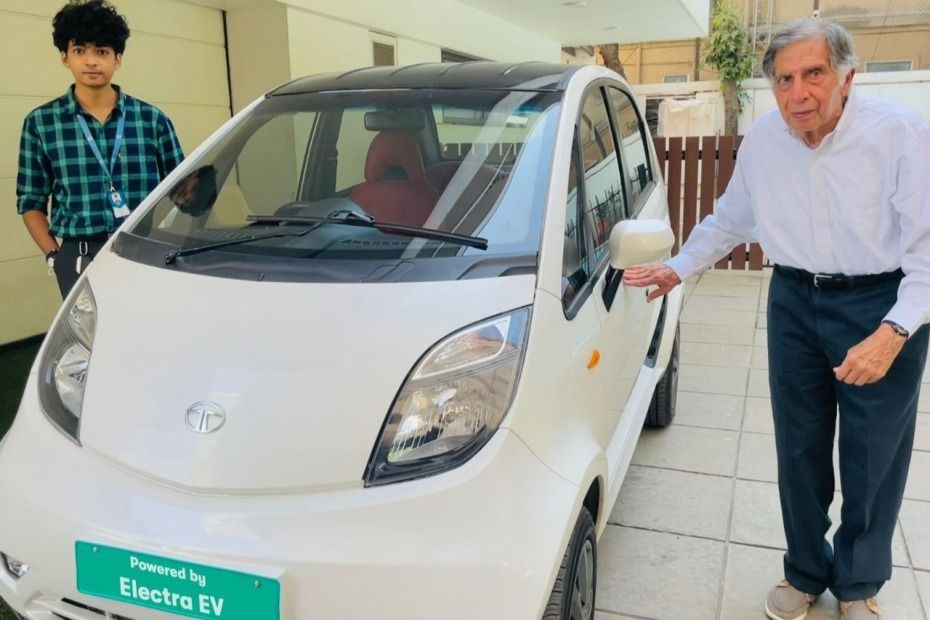Tata Nano EV Launch: Fact Vs Fiction
Modified On Apr 01, 2024 01:33 PM By Sonny
- Write a comment
Many people have fond memories of the Nano, but can Tata bring it back as an electric car with modern updates? Let’s find out

Tata is the leading brand for affordable EVs in India thanks to models like the Tata Tiago EV hatchback and Tata Nexon EV sub-4m SUV. However, the price for Tata’s entry-level EV is still somewhat steep, ranging from Rs 8 lakh to Rs 11.89 lakh (ex-showroom). This leads to a demand for an even more affordable EV which would be smaller than the Tata Tiago EV, and the first possible solution that comes to mind is an all-electric Tata Nano.
But Does A Tata Nano EV Make Sense?
The Tata Nano grabbed headlines worldwide as the Rs 1 lakh car. However, the dream struggled to become reality due to various factors and was eventually discontinued after being on sale between 2008 and 2018. During that period itself, Tata had hinted at plans for an all-electric Nano with a concept all the way back in 2010 but nothing came of it. The project potential came to light again in 2015 when a retrofitted Nano EV was created thanks to a collaboration between Tata and Jayem, but got a different name - the Neo EV. A few hundred units were delivered for fleet purposes but the product never made it to market either.
Also read: CD Speak: Should Tata Bring Back The Nano As An EV?

More recently, in 2022, another company called Electra EV retrofitted an electric powertrain within a Tata Nano, which was then delivered to Ratan Tata himself. Clearly, there is still interest for a Nano EV, but is there potential to make it a more affordable EV?
Just earlier in 2024, Tata and MG Motor slashed prices of their EVs thanks to a drop in the input costs for the battery materials. Presently, the cheapest EV in India is the MG Comet EV which starts at Rs 7 lakh, while the Tiago EV is priced from Rs 7.99 lakh (ex-showroom Delhi). So, as these EV-specific prices drop, it is possible for a Tata Nano EV to exist with a starting price of around Rs 6 lakh (ex-showroom). But will it happen?
Ideal Expected Range and Features
As a city-centric EV, a real-world range of 200-220 km would be sufficient. By using a small frame for a lightweight build, even a sub-20 kWh battery pack with a small electric motor could offer a good balance of range and performance.

While the Tata Nano was not exactly known for its features list, Tata cars today are increasingly popular for the extensive list of equipment on offer. If the nameplate were to return as an all-electric model, it would need to offer modern comforts like a touchscreen infotainment unit, a semi-digital instrument cluster, rear parking camera, a ‘proper’ AC and powered windows.
Market Positioning and Rivals
The Tata Nano EV would sit below the Tata Tiago EV in the carmaker’s own electric car lineup. The original Nano had 4 doors and was just under 3.1 metres in length, which is slightly longer than the 2-door MG Comet EV (2.97 metres). It also had a shorter radius than the MG EV. The Comet comes with many features, claims a range of 230 km, and is priced between Rs 6.99 lakh and Rs 9.14 lakh (ex-showroom).
Will The Tata Nano EV Launch?
As much as there is excitement about the idea of bringing back the iconic Tata Nano in a modernised and all-electric form, its true market potential is rather limited. The Tata Tiago EV is already an attractive package with its larger and more spacious proportions at competitive prices. While many people may want an affordable EV priced at around Rs 5 lakh, they are unlikely to buy a low-range EV that’s not rich in features for the sake of affordability.

Plus, there would be a significant cost involved in the development of the Tata Nano EV from scratch. To make it affordable, it would need to be sold in significant numbers to justify the investment. However, EV sales in India are still relatively low with only around 92,000 electric cars sold in 2023. While the Tiago EV was the best-selling EV in India last year, the Nano EV would need to sell in even larger numbers to justify its production costs.
Therefore, it is extremely unlikely for the Tata Nano EV to become a reality, at least not as a recognisable descendant of the original Tata Nano. However, it is possible that Tata might revive the nameplate in the future for a different kind of electric vehicle.
Would you like to see a Tata Nano EV in the future? What features and range would you expect from such a micro EV? Let us know your thoughts in the comment section.
17 out of 19 found this helpful















